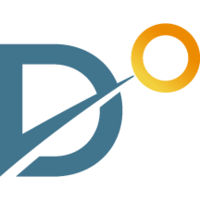预约演示
更新于:2025-12-06

Dermira, Inc.
更新于:2025-12-06
概览
标签
神经系统疾病
皮肤和肌肉骨骼疾病
消化系统疾病
单克隆抗体
疾病领域得分
一眼洞穿机构专注的疾病领域
暂无数据
技术平台
公司药物应用最多的技术
暂无数据
靶点
公司最常开发的靶点
暂无数据
| 排名前五的药物类型 | 数量 |
|---|---|
| 单克隆抗体 | 2 |
| 排名前五的靶点 | 数量 |
|---|---|
| IL-13(白细胞介素-13) | 2 |
关联
2
项与 Dermira, Inc. 相关的药物WO2024186796
专利挖掘靶点 |
作用机制- |
在研机构 |
原研机构 |
非在研适应症- |
最高研发阶段药物发现 |
首次获批国家/地区- |
首次获批日期- |
CN118215679
专利挖掘靶点 |
作用机制- |
在研机构 |
原研机构 |
非在研适应症- |
最高研发阶段药物发现 |
首次获批国家/地区- |
首次获批日期- |
15
项与 Dermira, Inc. 相关的临床试验NCT06906497
A Phase IV, Non-randomized, Open-label Multinational Trial to Assess the Mechanism of Action for Lebrikizumab in Moderate-to-severe Atopic Dermatitis
This research is studying a drug already approved for the treatment of atopic dermatitis (AD). This research collects health-related information and blood and skin samples to understand if the study drug, lebrikizumab, leads to long-term improvement in AD skin.
开始日期2025-07-02 |
申办/合作机构 |
NCT05559359
A Randomized, Double-Blind, Placebo-Controlled, Phase 3 Study to Assess the Efficacy, Safety and Pharmacokinetics of Lebrikizumab Compared to Placebo in Participants 6 Months to <18 Years of Age With Moderate-to-Severe Atopic Dermatitis
The main purpose of this study is to measure the effect, safety and how well the body absorbs lebrikizumab in pediatric participants 6 months to <18 years of age with moderate-to-severe atopic dermatitis (AD).
开始日期2022-10-18 |
申办/合作机构  Eli Lilly & Co. Eli Lilly & Co. [+1] |
NCT04146363
A Randomized, Double-blind, Placebo Controlled Trial to Evaluate the Efficacy and Safety of Lebrikizumab in Patients With Moderate to Severe Atopic Dermatitis
This is a randomized, double-blind, placebo-controlled, parallel-group study which is 52 weeks in duration. The study is designed to confirm the safety and efficacy of lebrikizumab as monotherapy for treatment of moderate-to-severe atopic dermatitis utilizing a 16-week induction treatment period and a 36-week long-term maintenance treatment period.
开始日期2019-09-24 |
申办/合作机构  Eli Lilly & Co. Eli Lilly & Co. [+1] |
100 项与 Dermira, Inc. 相关的临床结果
登录后查看更多信息
0 项与 Dermira, Inc. 相关的专利(医药)
登录后查看更多信息
14
项与 Dermira, Inc. 相关的文献(医药)2021-12-15·Journal of drug assessment
A systematic evidence-based review of treatments for primary hyperhidrosis
Article
作者: Stuart, Michael E. ; Strite, Sheri A. ; Gillard, Kristin Khalaf
OBJECTIVE:
Hyperhidrosis (excessive sweating) is associated with significant quality-of-life burden yet is often undertreated. With limited FDA-approved treatments, health care providers must determine optimal treatment among approved and off-label options. Key objectives of this review were to reassess, update, and expand a previous systematic review of commonly used treatment options for primary hyperhidrosis, including consideration of aluminum and zirconium compounds.
METHODS:
We performed a qualitative systematic review of efficacy, health-related quality of life, satisfaction, and safety of interventions, replicating and expanding the strategy outlined in a previous systematic review, with the addition of studies utilizing a within-patient design. We performed a critical appraisal of identified studies to determine risk of bias (RoB) and strength of evidence (SOE).
RESULTS:
A total of 32 studies were eligible for critical appraisal. Only three studies - two clinical trials of glycopyrronium cloth (2.4%) and one trial of botulinum toxin A injections in axillary hyperhidrosis were rated as "low" RoB; both had SOE ratings of "moderate" for use in axillary hyperhidrosis - the highest rating included in this review.
CONCLUSIONS:
Optimal treatment choice depends on several factors, including understanding the quality of evidence regarding each treatment's efficacy and safety (considerations of convenience and cost are beyond the scope of this review). In hyperhidrosis, as in other clinical conditions, treatment decisions should be patient centered. At this time, because of the quality of evidence, only imprecise estimates of effect are possible for hyperhidrosis treatments included in this review, and statements about comparative effectiveness are not possible.
2021-05-01·Clinical pharmacokinetics2区 · 医学
Limited Systemic Exposure with Topical Glycopyrronium Tosylate in Primary Axillary Hyperhidrosis
2区 · 医学
Article
作者: Pariser, David M ; Lain, Edward L ; Mamelok, Richard D ; Mould, Diane R ; Drew, Janice
BACKGROUND:
Glycopyrronium tosylate (GT; Qbrexza® [glycopyrronium] cloth, 2.4%) is a topical anticholinergic approved (USA) for primary axillary hyperhidrosis in patients aged ≥ 9 years.
OBJECTIVE:
The objective of this study was to compare the pharmacokinetics and safety of GT to oral glycopyrrolate (phase I study) and assess the relationship between glycopyrronium pharmacokinetics and anticholinergic-related adverse events or efficacy with population pharmacokinetics using data from two phase II studies.
METHODS:
In the phase I study, study staff applied GT to axillae of patients with primary axillary hyperhidrosis (aged 9-65 years) once daily (5 days); oral glycopyrrolate was administered to healthy adults (aged 18-65 years) every 8 hours (15 days). In the phase II studies (NCT02016885 [20 December, 2013], NCT02129660 [2 May, 2014]), adults with primary axillary hyperhidrosis applied topical glycopyrronium (0.8-3.2%) or vehicle to axillae once daily (4 weeks). Pharmacokinetic and adverse event data were collected in all studies.
RESULTS:
Glycopyrronium pharmacokinetic parameters were similar between adult and pediatric patients treated with GT; there was no evidence of accumulation. Systemic absorption of glycopyrronium was lower with GT vs oral glycopyrrolate. No anticholinergic-related adverse events occurred with GT in the phase I study, while dry mouth and nasal dryness occurred with oral glycopyrrolate; anticholinergic adverse events occurred in the phase II studies. In the population pharmacokinetic analysis, frequency/severity of anticholinergic-related adverse events increased with higher glycopyrronium concentration; no relationship was observed between efficacy and pharmacokinetic measures.
CONCLUSIONS:
These studies indicate limited absorption of GT compared to oral glycopyrrolate and a low risk of anticholinergic adverse events with proper GT administration when following instructions for use (wipe each underarm once with same cloth, wash hands, avoid ocular contact).
2021-04-01·The Journal of investigative dermatology1区 · 医学
Paired Transcriptomic and Proteomic Analysis Implicates IL-1β in the Pathogenesis of Papulopustular Rosacea Explants
1区 · 医学
Article
作者: Chang, Anne Lynn S ; Shih, Yi-Hsien ; Harden, Jamie L ; Li, Rui ; Hofland, Hans ; Rajendran, Divya ; Xu, Jin
Papulopustular rosacea (PPR) is a chronic inflammatory skin disease with limited treatment options. Although multiple pathways have been described to be upregulated in PPR, a mechanistic understanding of the key drivers and interaction between pathways in PPR pathology is lacking. In this study, we utilized PPR skin biopsy explants to integrate both differentially expressed genes and differentially expressed proteins in paired nonlesional and lesional PPR tissue (n = 5 patients). The results of this study identified 92 differentially expressed genes and 20 differentially expressed proteins between paired PPR lesional and nonlesional explants. MAPK and TNF signaling pathways were the most significantly upregulated pathways in PPR lesional tissue and aligned with differently expressed proteins identified in this study. Both MAPK and TNF signaling pathways highlighted IL-1β as a potential central mediator for PPR pathogenesis. In support of this, stimulation of nonlesional explants with IL-1β resulted in transcriptomic and proteomic profiles similar to those of lesional PPR. In this integrative transcriptomic and quantitative protein analysis, we identified several inflammatory genes, proteins, and pathways, which may be contributing to PPR, as well as highlighted a potential role of IL-1β in driving inflammation in PPR.
78
项与 Dermira, Inc. 相关的新闻(医药)2025-11-18
·吾桐发展
提到 IPO,多数人会默认企业得有稳定营收、清晰盈利路径。但美股市场近期上演了一场 “反常识” 操作 —— 临床阶段生物公司 Evommune,2024 年净亏损超 6680 万美元,至今无任何产品销售收入,却在 2025 年 11 月成功登陆纽交所,募资 1.5 亿美元。
这波操作背后,既是美股对创新研发的包容,也是生物医药赛道 “以潜力定价值” 的典型案例。
一、IPO 核心数据:募资 1.5 亿,聚焦临床研发
Evommune 此次 IPO 发行 937.5 万股普通股,发行价每股 16 美元,扣除承销折扣后实际募得净额约 1.365 亿美元。若承销商全额行使超额配售权,募资净额将增至 1.574 亿美元。
上市后公司总股本达 3007.76 万股,目前市值约 5.85 亿美元。所有募资将重点投入两大核心产品:
EVO756:推进慢性自发性荨麻疹、特应性皮炎的 2/3 期临床试验,同时探索哮喘、偏头痛等拓展适应症;
EVO301:加速特应性皮炎 2 期临床,后续布局溃疡性结肠炎等适应症。剩余资金将用于补充研发管线、业务拓展及日常运营。
二、零营收仍受追捧:核心竞争力藏在何处?
Evommune 能打破 “盈利门槛”,关键在于三大核心优势:
1. 差异化产品管线,直击千亿市场痛点
慢性炎症是全球健康难题,仅美国医疗系统每年相关成本就达 900 亿美元。公司两款核心产品均瞄准未被满足的医疗需求:
EVO756:口服小分子 MRGPRX2 拮抗剂,全球唯一兼具调节肥大细胞和外周感觉神经元的双重机制,已在早期临床试验中展现良好安全性和活性;
EVO301:长效融合蛋白,通过中和 IL-18 炎症通路起效,在给药频率、免疫原性等方面具备潜在优势。
2. 豪华管理团队,自带研发 “成绩单”
公司由行业资深人士联合创办,管理团队成员累计在 25 家以上企业担任过领导职务,参与过近 30 款获批药物的研发,包括 Ebglyss、Cimzia 等知名疗法。深厚的研发与商业化经验,成为资本市场信任的重要背书。
3. 战略合作铺路,全球布局初显
公司已与 Dermira、Maruho、AprilBio 等企业达成合作,其中向 Maruho 授予 EVO756 在日本及大中华区等亚洲市场的独家开发权,为产品全球化奠定基础。
三、财务真相:持续亏损但现金流有保障
尽管市场认可度颇高,Evommune 的财务状况仍呈现 “研发型公司” 的典型特征:
营收来源单一:2024 年营收 700 万美元,2025 年上半年营收 300 万美元,均来自 license 授权收入,无产品销售回款;
亏损持续扩大:2023 年净亏损 3405.3 万美元,2024 年增至 6680.8 万美元,2025 年上半年亏损 2812.2 万美元,主要因研发投入激增;
现金流充足:截至 2025 年 6 月 30 日,公司现金及短期投资达 8679.5 万美元,叠加本次 IPO 募资,预计可支撑运营至 2028 年下半年。
四、中美市场对比:科研型企业的上市赛道选择
Evommune 的成功上市,再次凸显了美股与 A 股的上市逻辑差异:
美股更看重 “创新潜力”:纳斯达克等市场降低了盈利门槛,允许未盈利但具备核心技术的研发型企业上市,为科研项目提供资金支持;
国内更强调 “盈利实力”:不少科研项目因前期投入大、回报周期长,未等成果落地就因资金短缺夭折。
对于手握优质科研项目的企业而言,Evommune 的案例提供了新启示:在全球资本市场中,清晰的技术路线、差异化的产品布局,或许比短期盈利更能获得资本青睐。
生物医药的 “耐心游戏”,资本愿为潜力买单
Evommune 的 IPO 故事,本质是资本市场对生物医药创新的 “耐心投资”。在这个需要长期研发、持续投入的赛道,没有产品、没有营收不等于没有价值。
随着核心产品临床试验推进,Evommune 能否实现从 “研发型” 到 “盈利型” 的跨越?美股对创新的包容能否持续催生更多类似案例?欢迎在评论区留下你的观点。
本文为交流之用,不具指导性;素材来自网络,若存在侵权行为,请及时告知删除。
2025-11-14
·百度百家
在之前的报道中,我们详细介绍了针对特应性皮炎靶向适应性免疫反应的注射用生物药。如今,该领域又有新突破,小分子口服药及外用药也在积极开展临床试验,虽尚未正式上市,但值得期待。接下来,我们将对这些药物进行全面解析,带您一探究竟。
◆ Adriforant
Adriforant,这款由诺华公司精心研发的药物,专为治疗特应性皮炎而设计。它不仅是一种新型的组胺H4R受体亲和型拮抗剂,更是一种功能强大的H4R受体功能性拮抗剂。在免疫性疾病的免疫炎症反应中,组胺H4受体(H4R)扮演着关键角色。目前,Adriforant已进入IIb期临床试验,其IIa期研究报告显示,该药物对患者SCORAD评分略有改善,但遗憾的是,并未显著缓解瘙痒症状。
◆ LEO152020/W1601
由LEO Pharma(利奥制药)公司倾力研发的LEO152020/W1601,专为特应性皮炎治疗而设计。这款药物同样聚焦于H4R靶点,目前其临床试验已顺利进入I期阶段。
◆ RPT193
RPT193,一款由RAPT Therapeutics公司精心研发的特应性皮炎治疗药物,其作用靶点为CCR4——Treg细胞上的关键趋化因子受体。作为CCR4小分子抑制剂,RPT193能够阻断Th2通路上游的关键环节,其作用机制与IL-4R抗体等有所不同。值得一提的是,RAPT Therapeutics公司已于2021年6月公布了RPT193治疗特异性皮炎的1b期临床数据,显示积极疗效。在为期6周的治疗中,RPT193的疗效已优于IL-4R抗体治疗12-16周的数据,并与JAK1抑制剂治疗12-16周的数据相当。目前,该药物的临床试验已顺利进入Ⅱa期。
◆ Etrasimod
Etrasimod,这款由Arena Pharma(后被辉瑞收购)公司研发的特应性皮炎治疗药物,主要作用于S1PR1、S1PR4和S1PR5三个靶点。作为一种口服、每日一次的选择性鞘氨醇1-磷酸(S1P)受体调节剂,Etrasimod目前正处于I期临床试验阶段。此外,该药物还显示出在治疗中度至重度活动性溃疡性结肠炎(UC)方面的潜力。
◆ SCD-044
SCD-044,这款由Sun Pharma(印度太阳药业)公司研发的特应性皮炎治疗药物,专注于S1PR1靶点,因而属于S1p1受体的激动剂。目前,其临床试验已顺利进入Ⅱa期。
◆ LC51-0255
LC51-0255,由LG Chem公司精心研发,专为特应性皮炎治疗而设计。它针对S1PR1靶点,对S1P1表现出卓越的选择性。多项临床研究已证实其出色的安全性和PK/PD相关性。目前,该药物的临床试验正稳步推进至I期阶段。
◆ BMS-986166
BMS-986166,由百时美施贵宝公司精心研发,同样聚焦于特应性皮炎的治疗。它特异性地针对S1PR1靶点,不仅作为活性磷酸化代谢产物,还是一种高效的选择性S1P受体调节剂。在临床前研究中,BMS-986166相较于其他S1P1R调节剂,在心脏安全性方面表现出显著优势。目前,该药物的临床试验已顺利进入Ⅱa期。
◆ KT-474
KT-474,由Kymera Therapeutics公司倾力研发,同样致力于特应性皮炎的治疗。它独特地作用于S1PR1靶点,并成为目前临床上独一无二的非肿瘤降解剂。目前,该药物的临床试验已稳步推进至Ib期。
◆ KT-474
KT-474属于小分子外用药物范畴,这类药物具有独特的优势,能够直接作用于患处,避免了对全身系统的潜在影响。其作用机制主要是通过抑制S1PR1靶点,从而有效减轻特应性皮炎的症状。
◆ AKP-19
AKP-19是Akaal Pharma公司倾力研发的一款针对特应性皮炎的药物,其作用靶点锁定为S1PR1。目前,该药物的临床试验已顺利推进至Ⅱ期阶段。
◆ Lotamilast
Lotamilast是由RVT-501/E6005公司精心研发的特应性皮炎治疗药物,其作用机制在于抑制磷酸二酯酶4(PDE4)。目前,该药物的临床试验已成功进入Ⅱ期阶段。
◆ Difamilast
Difamilast,也被称为OPA-15406,是一种针对局部、选择性和非甾体的磷酸二酯酶4(PDE4)抑制剂。它能够特别有效地抑制PDE4的B亚型,这一特性使其在轻中度特应性皮炎(AD)的治疗中显示出潜力。目前,该药物的临床试验已经成功进入Ⅱ期阶段。
◆ DRM02
DRM02,由Dermira公司精心研发,同样聚焦于特应性皮炎的治疗。它特异性地靶向磷酸二酯酶4(PDE4),并通过选择性抑制该酶来发挥作用。目前,该药物的临床试验已顺利进入Ⅱ期阶段。
◆ LEO29102
LEO29102,由LEO Pharma(利奥制药)公司倾力研发,同样以特应性皮炎为治疗对象。它专一性地作用于磷酸二酯酶4(PDE4),并通过精准抑制该酶来施展疗效。如今,该药物的临床试验已稳步推进至Ⅱ期阶段。
◆ Roflumilast
罗氟司特,这款由阿斯利康(AstraZeneca)公司精心研发的药物,同样以特应性皮炎为治疗对象,并专注于磷酸二酯酶4(PDE4)的抑制作用。目前,其临床试验已顺利进入Ⅱ期。值得一提的是,罗氟司特不仅是一种治疗特应性皮炎的药物,还是一种新型的磷酸二酯酶-4(PDE-4)抑制剂,常用于治疗严重COPD患者的支气管炎相关咳嗽和黏液过多的症状。然而,它并不适用于治疗并发原发肺气肿的COPD患者。
◆ Hemay-808
Hemay-808,这款由天津合美医药公司精心研发的药物,同样聚焦于特应性皮炎的治疗,并针对磷酸二酯酶4(PDE4)这一关键靶点。其临床试验已顺利推进至Ⅱ期,展现出良好的研发进展。值得一提的是,Hemay-808不仅用于治疗特应性皮炎,还广泛应用于类风湿性关节炎、炎症性肠病(IBD)、银屑病、脓毒症等多种自身免疫异常类疾病的临床治疗中。在2018年12月,国家药品监督管理局(NMPA,原CFDA)已受理该药物的临床试验申请(化药1类),并在2019年2月给予默认许可,开启其临床试验的新篇章。
◆ PF-07038124
辉瑞公司研发的PF-07038124,同样聚焦于特应性皮炎的治疗,其关键靶点为磷酸二酯酶4(PDE4)。与口服PDE抑制剂可能引发的胃肠道毒副作用不同,辉瑞的这款产品旨在提供外用的治疗选择。它追求高效性、快速清除、适宜的可溶性和渗透性,以适应外用配方需求。在2a期临床试验中,该候选疗法已取得积极成果,低剂量下即可显著减少患者的疾病面积和严重程度。在抗IL-4和抗IL-13抗体已成为治疗炎症性皮肤疾病的重要武器之际,这款外用PDE4抑制剂为联合生物制品治疗提供了新可能。目前,其临床试验已顺利进入Ⅱ期阶段。
◆ BEN2293
BenevolentiAl公司正在研发一款针对特应性皮炎的药物——BEN2293,其作用靶点为酪氨酸激酶受体(Tyrosine Kinase Receptor)。目前,该药物的I期和Ⅱ期临床试验正在同步进行中。
◆ HY209
Shaperon公司正在研发一款针对特应性皮炎的药物——HY209,其作用靶点为GPCR19。研究显示,HY209在AD动物模型中能够有效减少Th2炎症反应,并降低TSLP和胸腺活化调节趋化因子(TARC/CCL17)的水平。这一发现使其成为治疗特应性皮炎的潜在候选药物。目前,该药物的临床试验已进入Ⅱa期阶段。
◆ VTP-38543
Vitae Pharma公司正致力于研发一款针对特应性皮炎的药物——VTP-38543,其作用靶点为肝X受体-β。肝X受体(包括LXRα和LXRβ)作为配体激活的核转录因子,在调节皮肤脂质代谢及屏障功能形成方面扮演着关键角色。一项研究探讨了包含渗透增强剂TranscutolP和LXRβ激动剂VTP-38543的外用乳膏制剂在轻度至中度AD患者中的疗效。通过对I/II期研究中的皮肤活检样本进行转录组分析,结果显示该药物能有效改善皮肤增生,但对炎症标志物的下调作用并不显著。目前,该药物的相关临床试验正在有序推进中。
◆ ALX101
Ralexar公司正在研发一款针对特应性皮炎的药物——ALX101,其作用靶点同样为肝X受体。目前,该药物的临床试验已进入Ⅱ期阶段。
临床1期临床2期并购引进/卖出临床终止
2025-11-13
·森哥时间
提到上市公司,你或许会默认它得有稳定营收、清晰盈利路径?但 Evommune 偏打破这种认知 —— 这家专注生物医药的企业,至今无产品销售收入,2024 年净亏损超 6600 万美元,本质就是个聚焦慢性炎症疗法的科研项目。
可就是这样一家 “纯研发型” 公司,2025 年 11 月竟成功登陆纽交所!美股的包容度在此凸显:哪怕还在研发阶段,仅凭创新管线和科研潜力,也能上市募资推进项目,让科研价值被资本市场认可。
反观国内,不少科研项目没等成果落地就因资金等问题夭折。对比之下,纳斯达克更低的上市门槛,给中小企业和科研导向型企业更多机会。如果你手握优质科研项目,或许该看看美股这条赛道!
2025 年 11 月,临床阶段生物技术公司 Evommune 正式登陆纽约证券交易所,股票代码为 “EVMN”,标志着这家专注于慢性炎症疾病创新疗法的企业开启资本市场新篇章。作为一家 “新兴成长公司” 和 “小型报告公司”,Evommune 凭借差异化的产品管线和资深的管理团队,有望在竞争激烈的生物制药领域开辟新赛道。
本次 IPO 中,Evommune 共发行 937.5 万股普通股,发行价定为每股 16 美元,合计募资规模达 1.5 亿美元。扣除承销折扣及佣金后,公司实际募得净额约 1.365 亿美元,若承销商全额行使 140.625 万股的超额配售权,募资净额将进一步增至 1.574 亿美元。
发行前,公司已发行普通股 2070.256 万股,经可转债转换后总股本为 2070.256 万股;发行完成后,总股本将增至 3007.756 万股,若超额配售权全额行使则将达到 3148.381 万股。
以发行价 16 美元计算,公司上市后市值约为 4.81 亿美元(未考虑超额配售)。此次募资将主要用于核心产品 EVO756 的临床开发,包括慢性自发性荨麻疹(CSU)和特应性皮炎(AD)的 2/3 期临床试验,同时支持 EVO301 在 AD 适应症的 2 期临床推进,剩余资金将用于额外研发、业务拓展及营运资金等一般企业用途。
Evommune 成立于 2020 年,总部位于美国加利福尼亚州帕洛阿尔托,是一家专注于开发慢性炎症疾病创新疗法的临床阶段生物技术公司。
公司由首席执行官 Luis Peña、首席医疗官 Eugene A. Bauer 博士等行业资深人士联合创办,管理团队成员累计在 25 家以上企业担任过领导职务,参与过近 30 款获批小分子药物和生物制剂的研发,包括 Ebglyss(lebrikizumab)、Cimzia(certolizumab pegol)等知名疗法,具备深厚的药物研发与商业化经验。
公司目前拥有 Evommune Research, LLC 和 Evommune Biologics, LLC 两家全资子公司,业务架构围绕核心产品研发、临床推进、战略合作三大板块展开,核心目标是针对慢性炎症的关键驱动因素,开发具有快速症状缓解和持久疗效的创新疗法,改善患者生活质量并预防失控炎症带来的长期危害。
慢性炎症是全球重大健康问题,不仅严重影响患者生活质量,还可能引发心血管疾病、糖尿病、癌症等致命疾病,仅美国医疗系统每年相关成本就高达 900 亿美元。
Evommune 聚焦这一未被满足的医疗需求,构建了以 EVO756 和 EVO301 为核心的差异化产品管线,初期临床开发重点覆盖慢性自发性荨麻疹、特应性皮炎和溃疡性结肠炎三大适应症。
EVO756 是公司最先进的临床阶段候选药物,作为一种强效、高选择性的口服小分子 MRGPRX2 拮抗剂,可同时调节肥大细胞和外周感觉神经元,是目前唯一具有双重作用机制的临床阶段疗法,有望为炎症相关疾病提供新的治疗选择。
该药物已完成 1 期概念验证试验和慢性诱导性荨麻疹(CIndU)的 2 期试验,显示出良好的安全性和临床活性,目前正推进 CSU 的 2b 期剂量探索试验和 AD 的 2b 期试验,预计分别于 2026 年上半年和下半年公布初步结果。
此外,EVO756 还具备向哮喘、偏头痛、间质性膀胱炎等多个适应症拓展的潜力。
EVO301 是一款长效融合蛋白,由 IL-18 结合蛋白和抗血清白蛋白 Fab 相关结构域组成,通过中和 IL-18 炎症通路发挥作用,其设计在疗效、组织分布、给药频率和免疫原性风险方面具有潜在优势。
该药物目前处于 AD 适应症的 2 期临床阶段,预计 2026 年上半年公布初步数据,后续还计划推进溃疡性结肠炎及克罗恩病等适应症的临床开发。
两款核心产品机制互补,为公司覆盖更广泛的慢性炎症患者群体奠定基础。
同时,公司通过战略合作加速业务拓展,已与 Dermira、Maruho、AprilBio 等企业达成许可或合作协议,其中向 Maruho 授予了 EVO756 在日本及大中华区等亚洲市场的开发和商业化独家权利,为产品的全球布局铺路。
作为临床阶段生物制药公司,Evommune 目前尚未实现产品销售收入,营收主要来源于 license 授权相关收入。
财务数据显示,2023 年公司营收为 500 万美元,2024 年营收增长至 700 万美元;2025 年上半年营收为 300 万美元,较 2024 年同期的 700 万美元有所下滑,主要受不同合作协议下授权收入确认节奏影响。
盈利方面,由于持续投入研发,公司目前处于亏损状态。
2023 年净亏损为 3405.3 万美元,2024 年净亏损扩大至 6680.8 万美元;2025 年上半年净亏损为 2812.2 万美元,较 2024 年同期的 3016.6 万美元略有收窄。
截至 2025 年 6 月 30 日,公司累计赤字达 1.803 亿美元。
费用结构上,研发投入占比显著,2023 年研发费用为 3199.7 万美元,2024 年增至 6424.4 万美元,2025 年上半年研发费用为 3400 万美元; general and administrative 费用则从 2023 年的 1085.3 万美元增长至 2024 年的 1276.9 万美元,2025 年上半年为 702.6 万美元,反映出公司在临床推进和运营扩张上的持续投入。
截至 2025 年 6 月 30 日,公司现金、现金等价物及短期投资为 8679.5 万美元,结合本次 IPO 募资,预计可支持运营至 2028 年下半年,为核心产品的临床研发提供充足资金保障。
招股说明书日期所签订的承销协议中的条款及受其条件约束,下述承销商(由摩根士丹利公司、Leerink Partners LLC、Evercore Group L.L.C.和Cantor Fitzgerald & Co.担任代表)已分别同意购买,公司也已同意分别向其出售下文所示数量的股份,具体为:摩根士丹利公司3,468,750股、Leerink Partners LLC 2,625,000股、Evercore Group L.L.C. 1,968,750股、Cantor Fitzgerald & Co. 1,312,500股,股份总数为9,375,000股。
中介机构
美国律师:Cooley LLP
承销商律师:Covington & Burling LLP
审计师:BDO USA, P.C.
特别声明:
本文为作者原创分析和写作内容,但部分信息和数据有可能来自于公司(或官方)公开披露的信息!本人\公司对上述信息的来源、准确性及完整性不作任何保证。在任何情况下,本文中的信息仅供参考,同时不构成任何投资建议。若需转载请注明作者信息。
往期文章:
玩转纳斯达克,你需要的是圈子!
七个月,森哥团队项目Lakeside纳斯达克上市!
森哥团队操盘!成都山友暖通“炼”出纳斯达克:把空调安装生意写出“国际”资本故事
纳斯达克上市指南更新:2025年新变化全解析
纳斯达克,并非提高上市门槛!是提议修改首次上市的流动性要求
2024年,纳斯达克中国企业IPO的中介机构情况(含附件)
2024年赴美上市中概股总结,为什么中小型公司更多?
#纳斯达克上市 #纳斯达克上市辅导 #纳斯达克上市公司 #资本思维
IPO临床2期财报
100 项与 Dermira, Inc. 相关的药物交易
登录后查看更多信息
100 项与 Dermira, Inc. 相关的转化医学
登录后查看更多信息
组织架构
使用我们的机构树数据加速您的研究。
登录
或

管线布局
2026年02月28日管线快照
管线布局中药物为当前组织机构及其子机构作为药物机构进行统计,早期临床1期并入临床1期,临床1/2期并入临床2期,临床2/3期并入临床3期
药物发现
2
5
其他
登录后查看更多信息
当前项目
| 药物(靶点) | 适应症 | 全球最高研发状态 |
|---|---|---|
CN118215679 ( IL-13 )专利挖掘 | 神经系统疾病 更多 | 药物发现 |
WO2024186796 ( IL-13 )专利挖掘 | 神经系统疾病 更多 | 药物发现 |
DRM-02 ( PDE4 ) | 特应性皮炎 更多 | 无进展 |
Skin disorder therapeutics(Dermira) ( Protein kinases ) | 寻常痤疮 更多 | 无进展 |
Olumacostat glasaretil ( ACC1 x ACC2 ) | 寻常痤疮 更多 | 无进展 |
登录后查看更多信息
药物交易
使用我们的药物交易数据加速您的研究。
登录
或

转化医学
使用我们的转化医学数据加速您的研究。
登录
或

营收
使用 Synapse 探索超过 36 万个组织的财务状况。
登录
或

科研基金(NIH)
访问超过 200 万项资助和基金信息,以提升您的研究之旅。
登录
或

投资
深入了解从初创企业到成熟企业的最新公司投资动态。
登录
或

融资
发掘融资趋势以验证和推进您的投资机会。
登录
或

生物医药百科问答
全新生物医药AI Agent 覆盖科研全链路,让突破性发现快人一步
立即开始免费试用!
智慧芽新药情报库是智慧芽专为生命科学人士构建的基于AI的创新药情报平台,助您全方位提升您的研发与决策效率。
立即开始数据试用!
智慧芽新药库数据也通过智慧芽数据服务平台,以API或者数据包形式对外开放,助您更加充分利用智慧芽新药情报信息。
生物序列数据库
生物药研发创新
免费使用
化学结构数据库
小分子化药研发创新
免费使用
